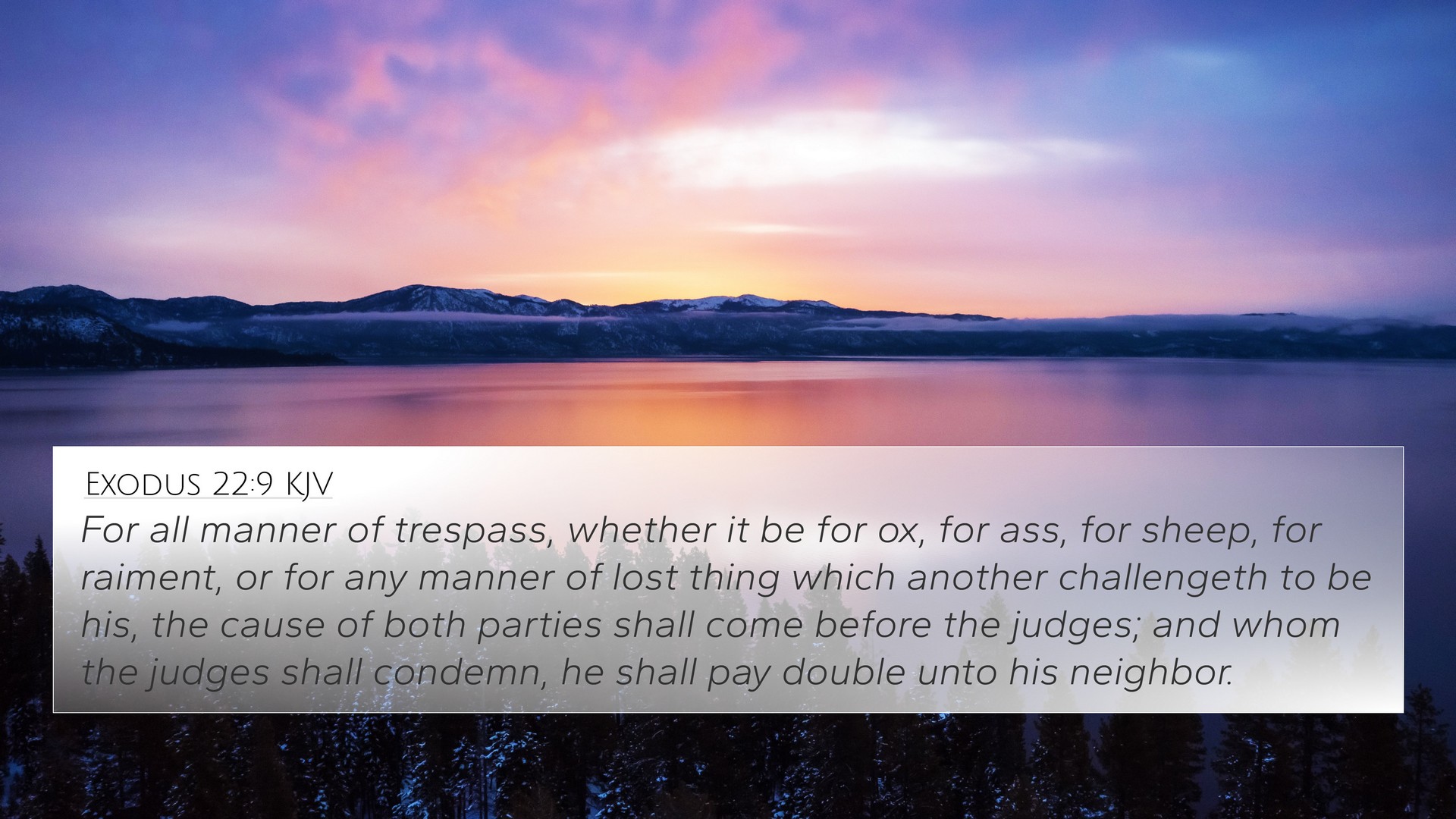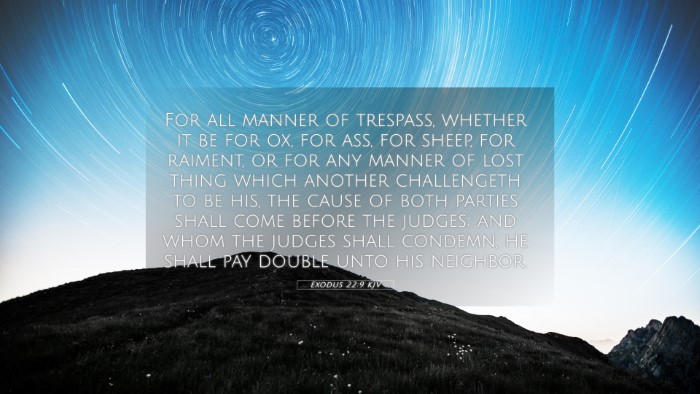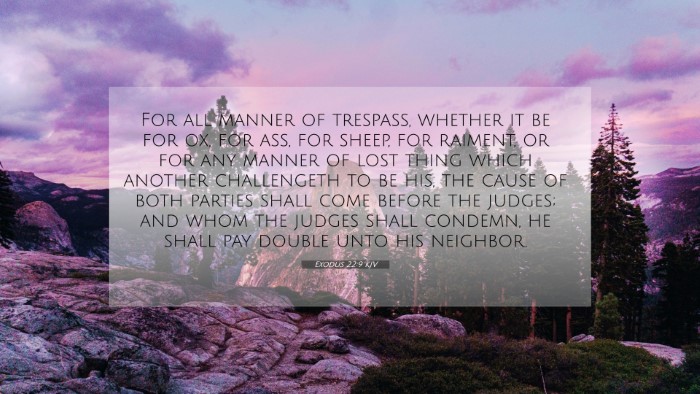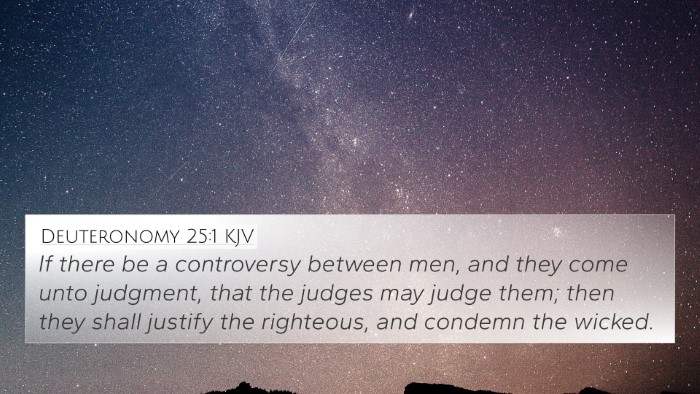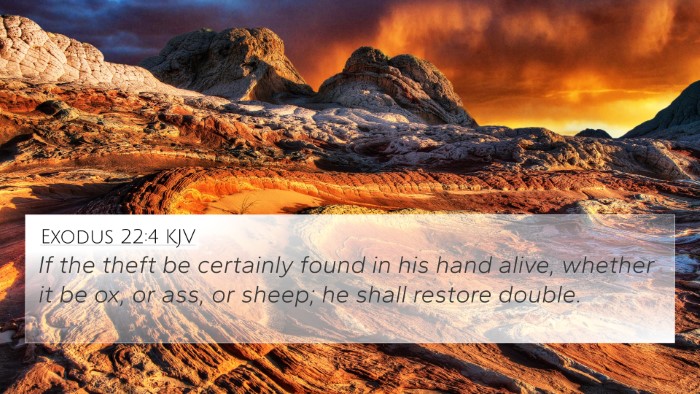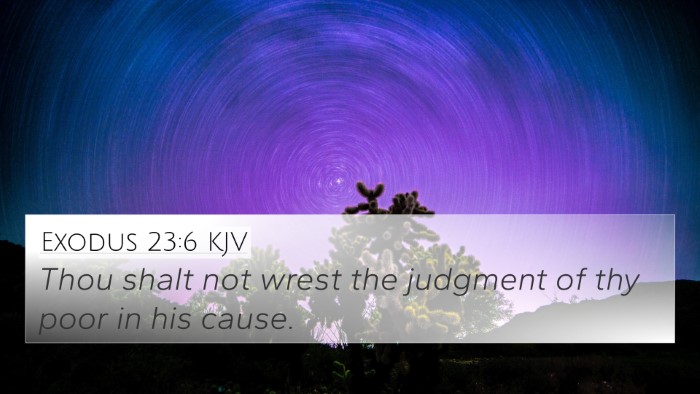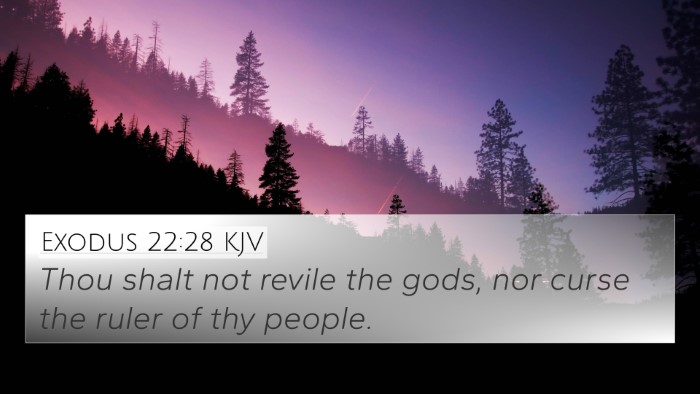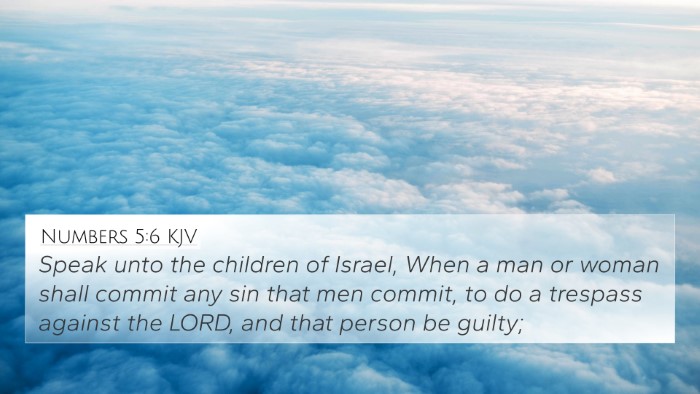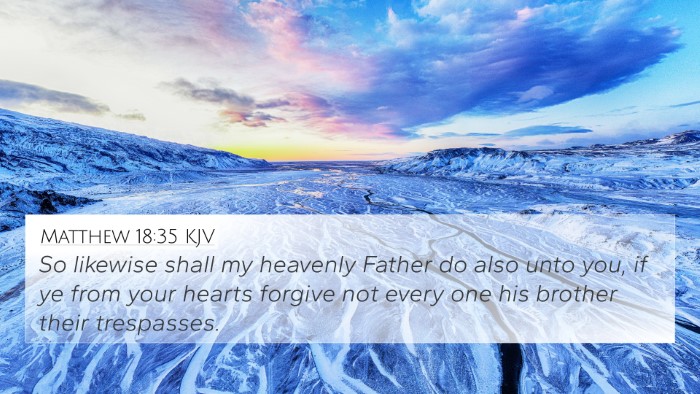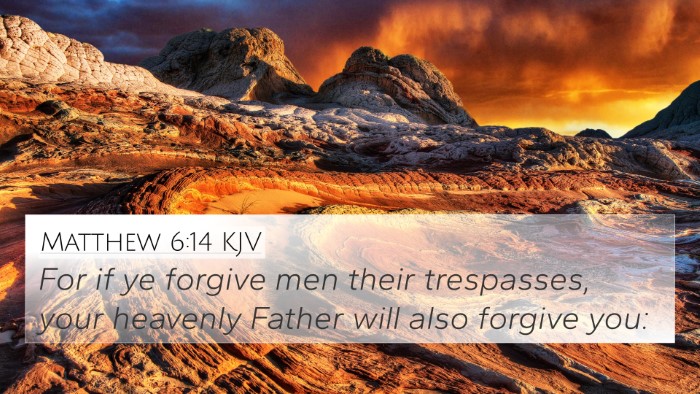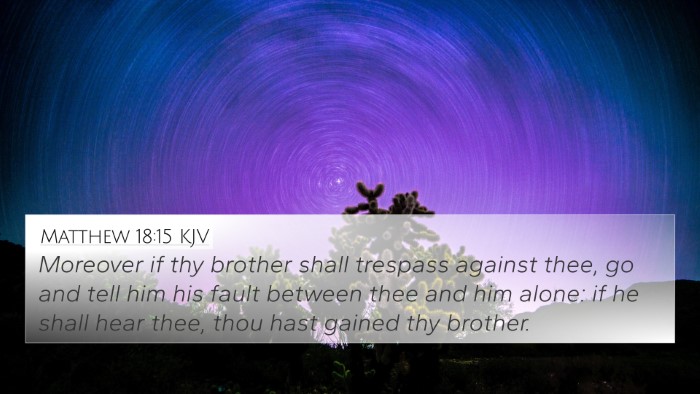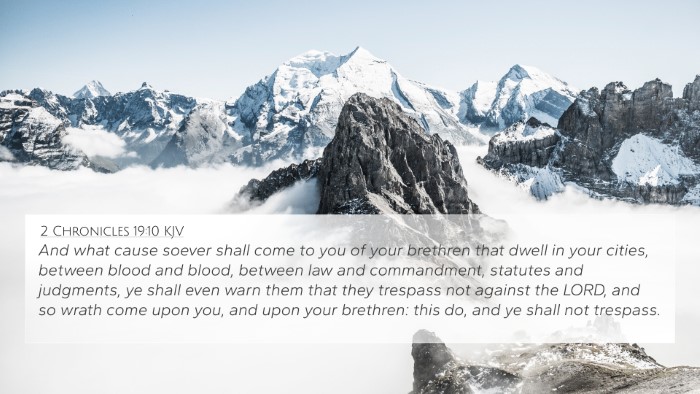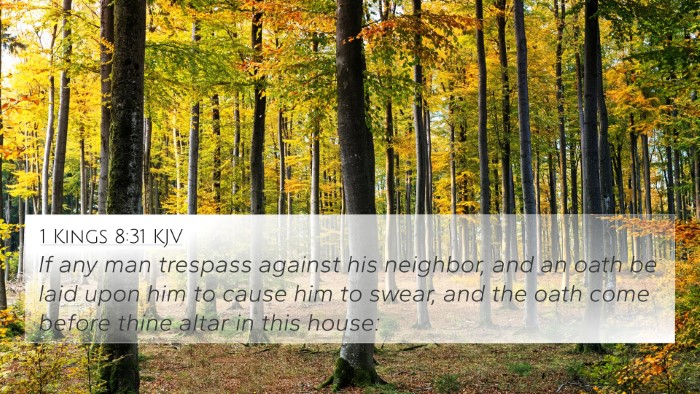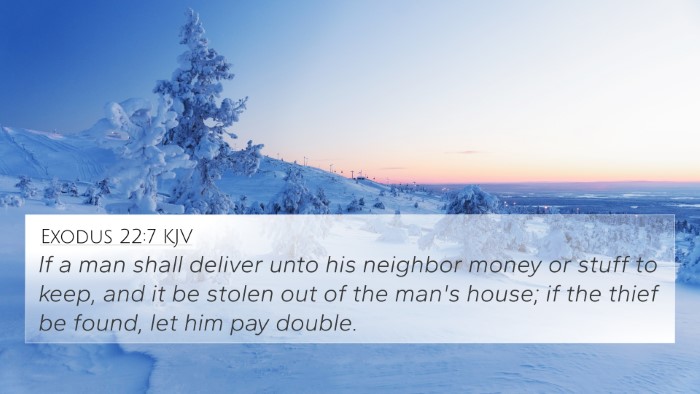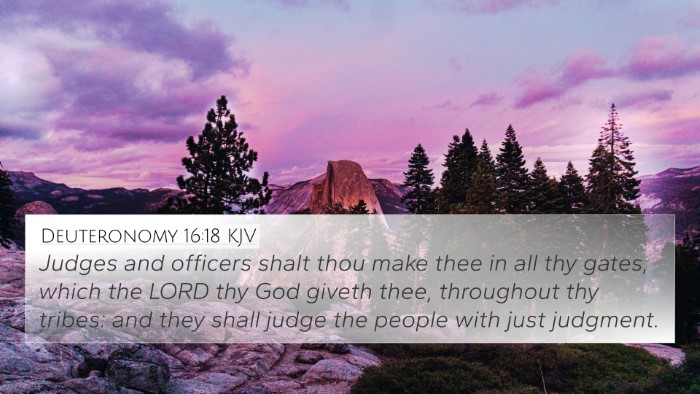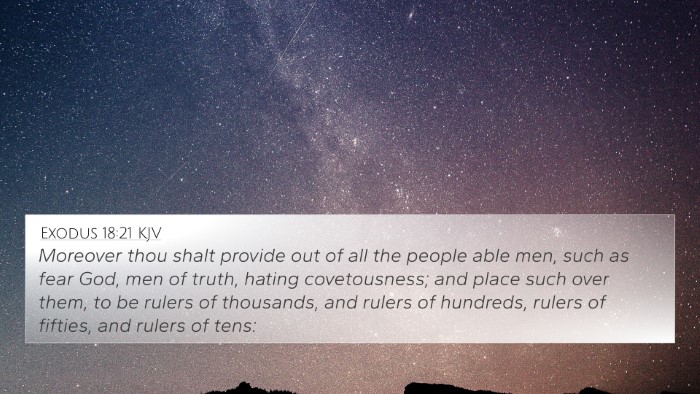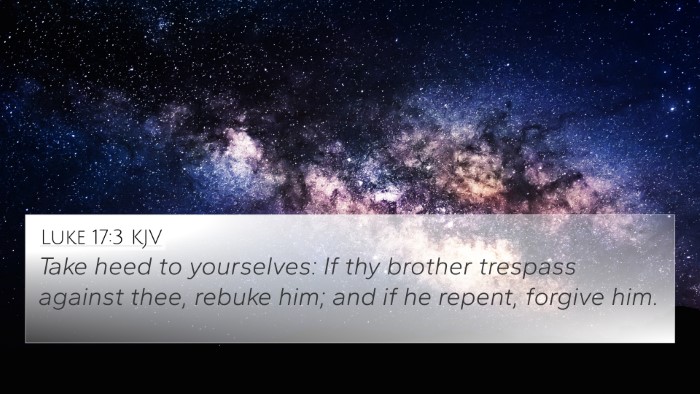Understanding Exodus 22:9
Exodus 22:9 states: "For every matter of trespass, whether it be for ox, for ass, for sheep, for raiment, or for any manner of lost thing, which another challenge to be his, the cause of both parties shall come before the judges; and whom the judges shall condemn, he shall pay double unto his neighbour."
Interpretation Summary
This verse addresses issues surrounding property disputes and responsibilities towards one's neighbor. It emphasizes the need for justice and accountability in matters of lost property. The text outlines a process in which conflicting claims are to be brought before judges, highlighting the importance of lawful adjudication.
Key Themes
- Justice and Fairness: The verse underscores the fundamental principle of justice. Both parties in a dispute present their claims to a judge, ensuring a fair process.
- Accountability: There is a clear mandate that if a party is found guilty, he must pay double for his wrongdoing, reinforcing the idea of accountability for one’s actions.
- Property Rights: The focus on various types of property (oxen, sheep, raiment) demonstrates the biblical importance of respecting others' property and the legal protections that should be in place.
Cross-References and Thematic Connections
Exodus 22:9 connects with several other scriptures, creating a network of biblical principles surrounding justice and ethical behavior:
- Exodus 23:1-3: Discusses the importance of honesty and the prohibition against spreading false reports.
- Leviticus 6:2-5: Offers a similar direction for restitution when one has wronged another, emphasizing the importance of making amends.
- Deuteronomy 19:15-21: Establishes guidelines for witnesses and justice, ensuring that justice is served correctly.
- Micah 6:8: Calls for justice, kindness, and humble walking with God, aligning with the ethical obligations presented in Exodus.
- Matthew 7:12: The Golden Rule, which emphasizes treating others as one wishes to be treated, echoes the principles found in Exodus 22:9.
- Luke 16:10: Discusses faithfulness in little things, tying to the larger theme of responsibility over possessions.
- Proverbs 21:15: States that justice is a joy to the righteous but terror to the evildoers, emphasizing the moral weight of right and wrong.
Commentary Insights
Various public domain commentaries provide further depth to understanding Exodus 22:9:
- Matthew Henry: Emphasizes the moral obligation to respect the property of others and the necessity of judicial intervention in disputes to ensure righteousness.
- Albert Barnes: Notes that the requirement for restitution (paying double) underscores the seriousness of the offense and serves as a deterrent against dishonesty.
- Adam Clarke: Highlights that the judicial process is vital in maintaining social order and deterring wrongful behavior, thus promoting a peaceful community.
Application and Reflection
When reflecting on Exodus 22:9, believers are encouraged to consider:
- How does this emphasis on justice and accountability inform our current understanding of property and relationship management?
- In what ways can we ensure fairness and honesty in our own interactions and conflicts?
- How might these principles be applied in community settings today to promote harmony and mutual respect?
Conclusion
In conclusion, Exodus 22:9 serves as a vital reminder of the principles of justice, accountability, and the importance of lawful resolutions to conflicts. Its connections with other scripture emphasize a cohesive biblical narrative advocating for ethical behavior and respect among individuals.
Further Study and Resources
For those interested in deeper study, utilizing tools for Bible cross-referencing, such as a bible concordance or bible cross-reference guide, can elucidate further connections and provide a comprehensive understanding of biblical principles surrounding justice.
